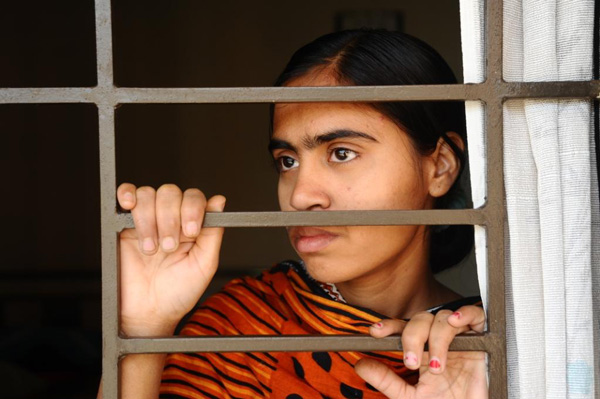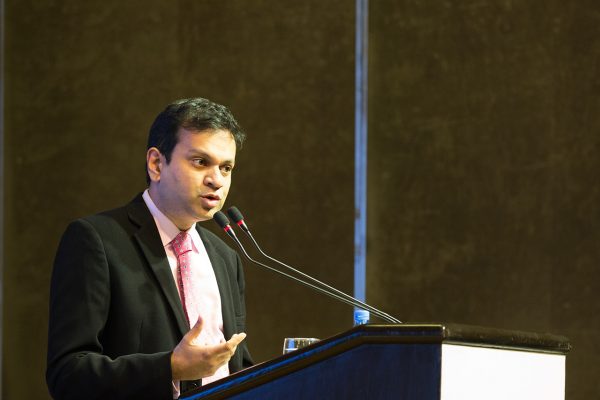Reading Time: 3 minutes
Every morning I am woken by Hawa. In Bengali, hawa means breeze, but that’s not what I am referring to. I’m talking about my part-time domestic worker called Hawa. Hawa migrated from Mymensingh to Dhaka with her mother and sister in 2009. They came to Dhaka to work as domestic workers to provide for their family, while the men in their family stayed back in the village. Hawa never went to school. She cannot read or write.
Every morning I am woken by Hawa. In Bengali, hawa means breeze, but that’s not what I am referring to. I’m talking about my part-time domestic worker called Hawa.
Hawa migrated from Mymensingh to Dhaka with her mother and sister in 2009. They came to Dhaka to work as domestic workers to provide for their family, while the men in their family stayed back in the village. Hawa never went to school. She cannot read or write.
I offered to tutor her; she agreed to it but didn’t show up for the lesson. No matter how many times we rescheduled, Hawa would always give it a miss. Finally, she told me that she did not have the time for lessons. Apart from working at six different houses, she also had to fill in for her mother since her mother was unwell. Hawa was overworked, but she couldn’t do anything about it. She had to keep her job as well as her mother’s ones because they needed the money.
Almost all of us are familiar with women like Hawa. We are not oblivious to their situations. They have the same story with a different name. We see them working relentlessly; cooking, cleaning, doing laundry, and in some cases providing care for children or elderly dependents. Yet, they are not recognised as formal sector workers. They are excluded from the formal workforce, and are thus denied labour rights. This exclusion is in fact a breach of their human rights.
Every year a large number of women migrate from rural to urban areas in Bangladesh. They have different reasons to migrate – poverty, natural disaster, climate change, political and social struggle – but they all seek a better life. Often, the women migrants end up either as regular domestic workers or as part-time helps. Most of them have no established working hours – there is no account of the overtime they work. They are not entitled to a minimum wage or even a decent working condition.
Domestic workers are confined within the households they work for and have frequent contact with their employer’s family members and visitors. This puts them in a very vulnerable position. They may be subjected to different forms of harassment or violence. The fact that domestic workers do not have the education or a manual briefing them about the acceptable terms of a workplace, it becomes difficult for them to identify abuse and injustice. They lack the information or knowledge to verbally express what they might face in the workplace or in urban slums. Moreover, domestic workers are unaware of how to prevent violence or where to seek support from.
The involvement of child workers, especially girls, is another major concern in this sector. According to the International Labour Organization, there are 421,000 children engaged in domestic work and this number is increasing day by day. Of the total, three quarters are girls. Another study by Plan International shows that every 185 out of 400 child domestic workers are below the age of 12.
However, there are policies and laws to protect women’s and children’s rights like the Prevention of Repression against Women and Children Act 2000 and the Bangladesh National Children Policy 2011. But the existing laws do not adequately extend to migrant domestic workers. They are ignored by the Bangladesh Labour Act 2006. There are international conventions, ie ILO 189, that protect the rights of domestic workers, but it has not been ratified by the government of Bangladesh yet. A draft law has been finalised by the Ministry for Labour and Employment based on the advocacy of the Domestic Workers’ Rights Network, but there is no sign of progress of the draft law.
Policymakers need to focus on domestic workers’ rights and should acknowledge them as formal sector workers. These workers should receive awareness training, skills development training and life skills. The employers and mass media need to be sensitised about the rights of the domestic workers. It’s high time that this segment of people should be provided with legal, health, counselling and other necessary support.
Mushfika Jahan is a field coordinator for BRAC’s migration programme in Dhaka, Bangladesh.






